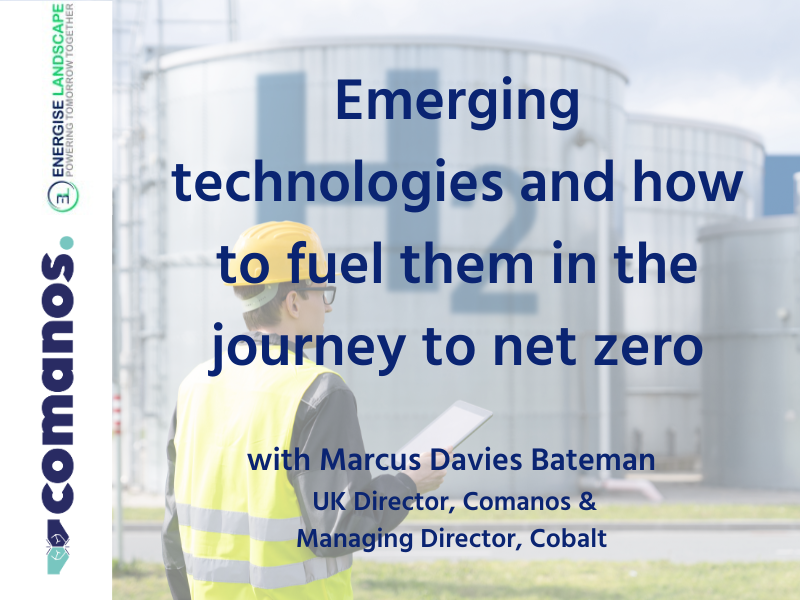
Article posted by on Oct 25, 2024
In my last piece from the Energy Landscape UK Conference, I spoke about how net zero itself required greater clarity with policymakers, employers, and the wider public. Day 2 at the Conference looked more in-depth at emerging technologies and how they can practically fit into the net zero roadmap in the UK, with the key insights from the event below.
EV Charging and the Opportunity
Key figures from the field of Electric Vehicles (EV) looked at how the development of this space could have overwhelmingly positive benefits to hitting net zero targets across the UK in a series of panels on day 2.
Positive examples so far in the UK have included the rollout of smart grids in Oxfordshire – but the discussion centred around how few examples there are like this and that without standardisation and data sharing between developers across sites, we’ll never be able to maximise the potential of these hubs.
For the potential to be realised, a shift is needed in both Government policies and public perception of EVs. The economic implications and benefits of owning an EV need to be addressed, with salary sacrifice schemes being mooted as something that could be standardised by employers across the UK. As well as this, the impact on the grid needs to be looked at, and the further development of smart charging technologies will need to be further invested into and rolled out to enhance accessibility across all potential users and locations in the UK.
Unleashing the Potential - Hydrogen in the UK's Clean Energy Revolution
Perhaps the area of green energy with the greatest potential, discussions at the Conference painted an optimistic future for hydrogen as a cornerstone of a sustainable energy strategy - if we can get certain areas right.
These areas of utmost importance include the development of innovative technologies and storage solutions that are capable of providing a stable hydrogen supply, so they can not only be relied upon by individual consumers, but can become a staple in facilitating international trade, too.
The second key area discussed was the need for regulatory frameworks and policies from the Government. These will be critical in guiding the development of hydrogen technologies and carbon capture developments, so investors have confidence in the scalability of hydrogen projects in the UK across the EU and beyond.
Finally, for us to really maximise the potential of hydrogen, we need to get the public onside - addressing the safety concerns that have so far maligned its growing potential.
Private and Public Investment Synergy - Fuelling the UK's Net Zero Revolution
Further to the influence on public perception of new technologies, for investors to be confident in investing in the new green economy, it needs to be made more stable and inviting.
With fossil fuels still a critical part of many sectors, a nuanced approach to phasing these out and offering incentives for moving toward decarbonisation would be required – perhaps through taxes on carbon-heavy investments and incentives for investing into cleaner technologies – with the new Government critical in implementing these potential policies.
On the Government, it will need to continue to build on schemes like GB Energy and the UK Infrastructure Bank, to establish the UK as a leader in the development and rollout of green-tech initiatives. Further private-public partnerships will be critical for investors so that they know that their investments have backing from whatever Party is in charge of the country as we accelerate toward 2030 and beyond.
Skill Development Critical in the Transition
The biggest challenge for the Government and in the development of emerging technologies? Developing the policies and the technology will be critical, but having the right people to do this will be imperative to their success.
As a specialist renewables recruitment agency, we’ve seen how the talent pool in the renewables and clean energy space has grown exponentially over the past few years. The sector has been taking those with transferrable skills from traditionally real estate-focused roles like land acquisition specialists and planners, through to project managers and those in development, as well as the finance professionals that have an understanding of the considerations there need to be when planning and managing a portfolio of assets. We’ve also seen the growth of several environmental-focused roles, like ecologists and even ornithologists gaining popularity, roles that are as important to sustainable developments as the technologies that are being created.
Comanos, part of The Cobalt Group, is uniquely positioned to assist your company in navigating this evolving landscape. Leveraging Cobalt’s 23 years of experience in real estate, Comanos can help through our:
-Expert Recruitment Services: We specialise in connecting top talent with leading companies in renewable energy and real estate, ensuring you have the expertise needed to drive your projects forward.
-Industry Insights and Guidance: Our deep industry knowledge and insights from forums like UKREiiF provide you with the latest trends and opportunities, helping you make informed strategic decisions.
-Tailored Support: We offer personalised guidance and support, from the identification of roles through to job descriptions, sourcing, and interviewing of candidates, to ensure that you get the best talent for your organisation to help you achieve your goals.
Get in touch with me below, I’d be delighted to see how Comanos could assist.
Email: MDB@comanos.co.uk
Phone: +44 (0)7488821918